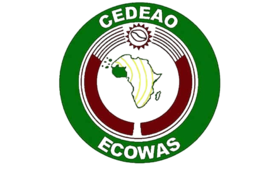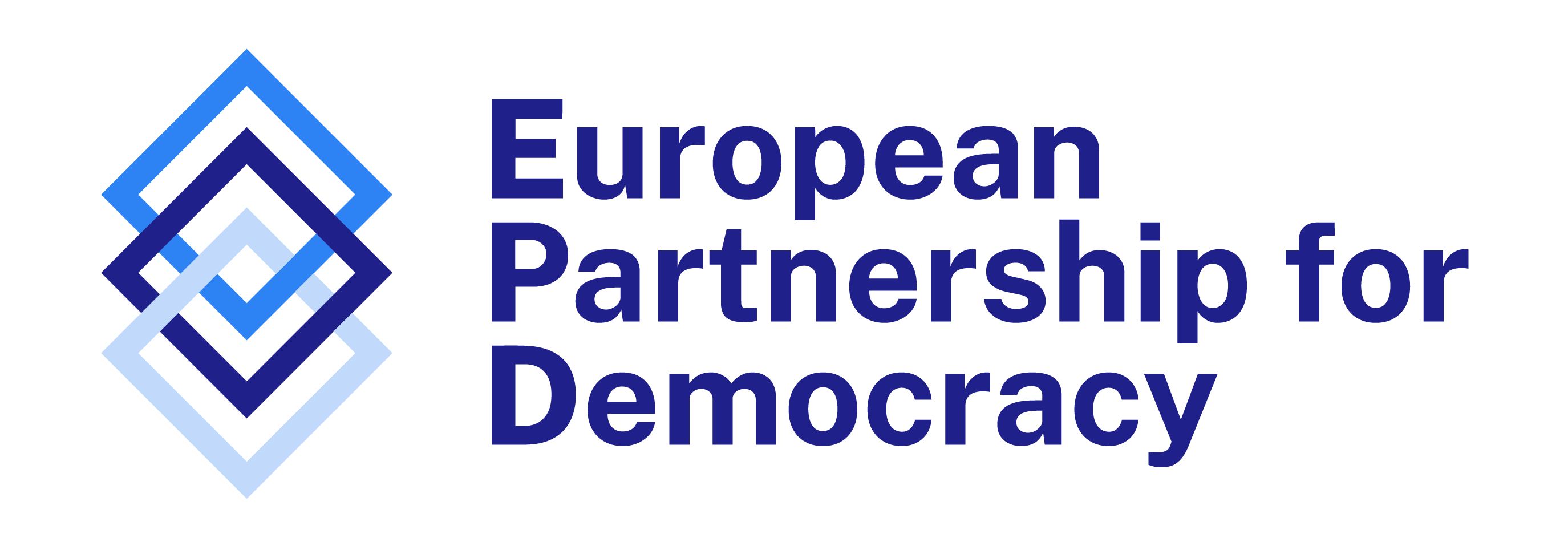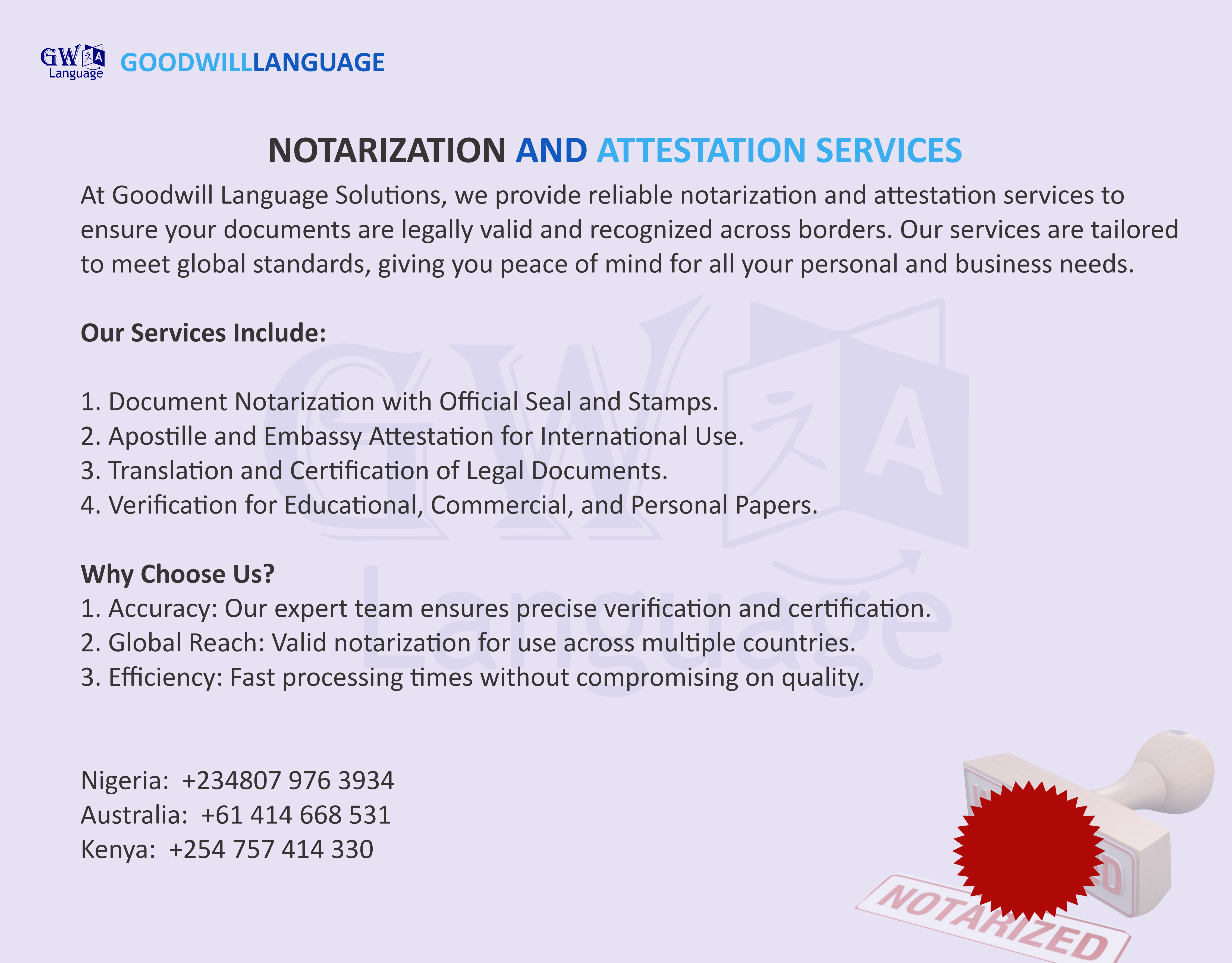
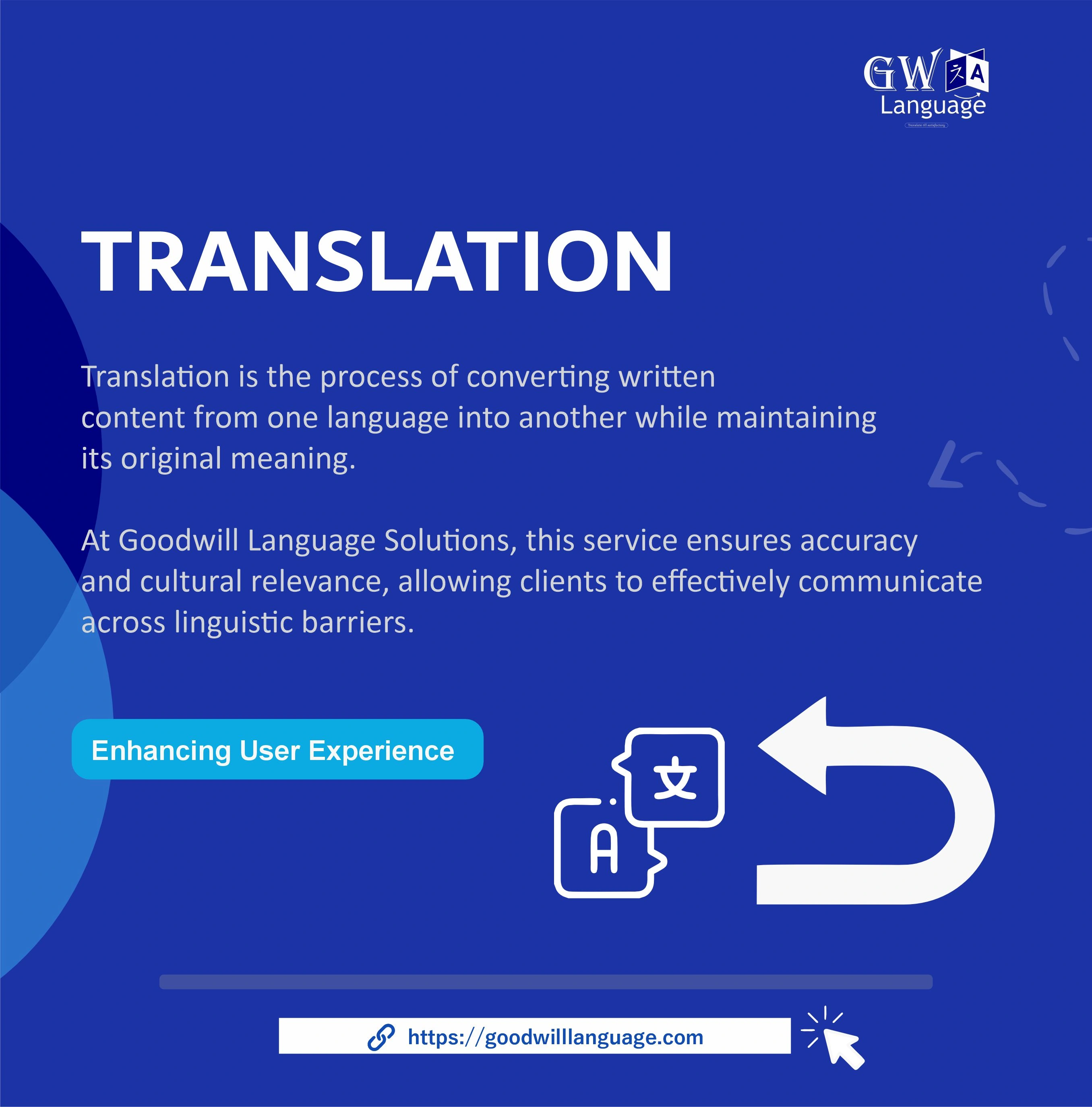
Converting written text from one language to another.
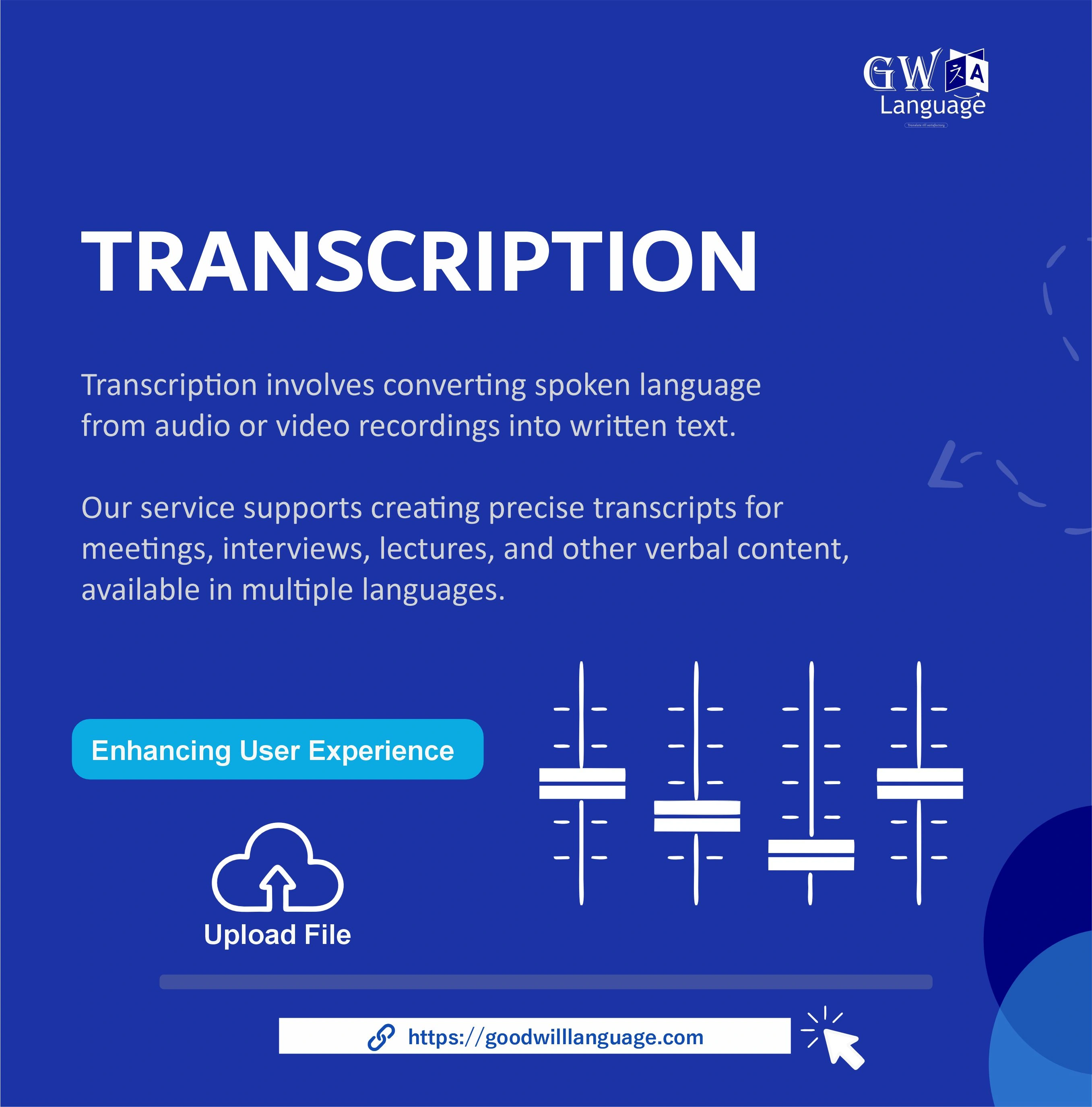
Converting audio/video to written text.
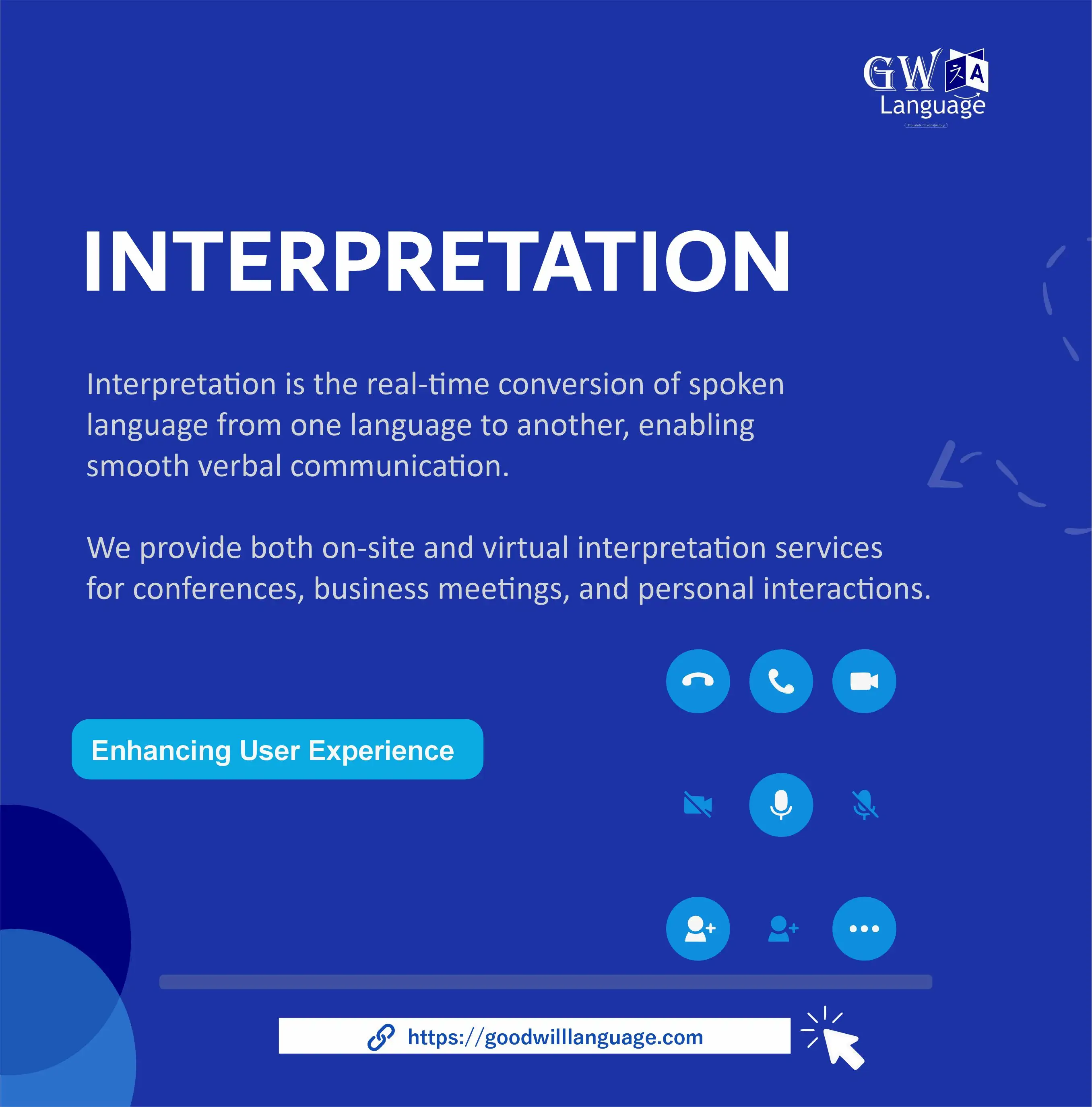
Converting spoken language from one language to another.

Displaying translated dialogue on screen.
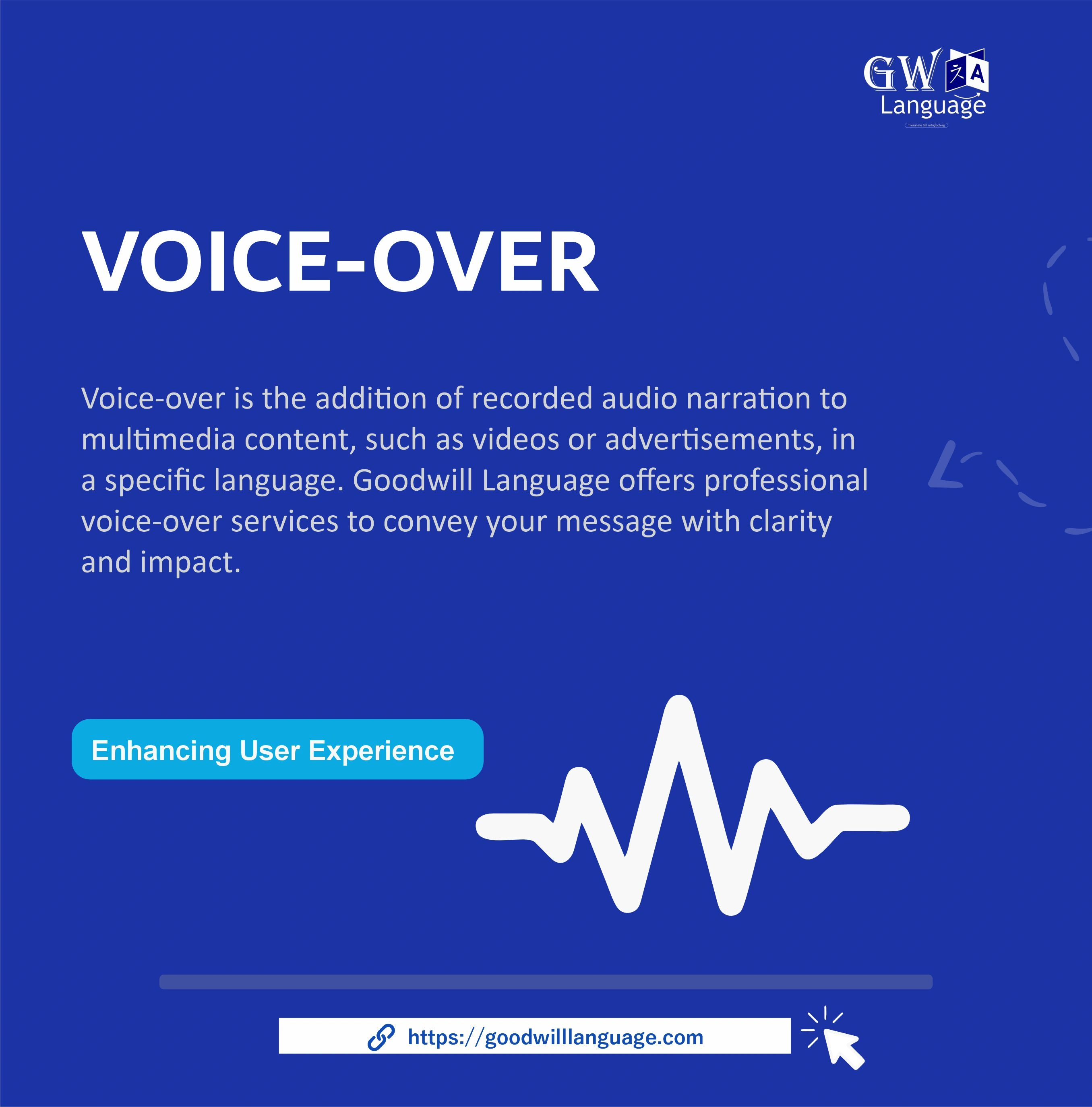
Adding spoken narration to audio/video.

Providing instruction in foreign languages.
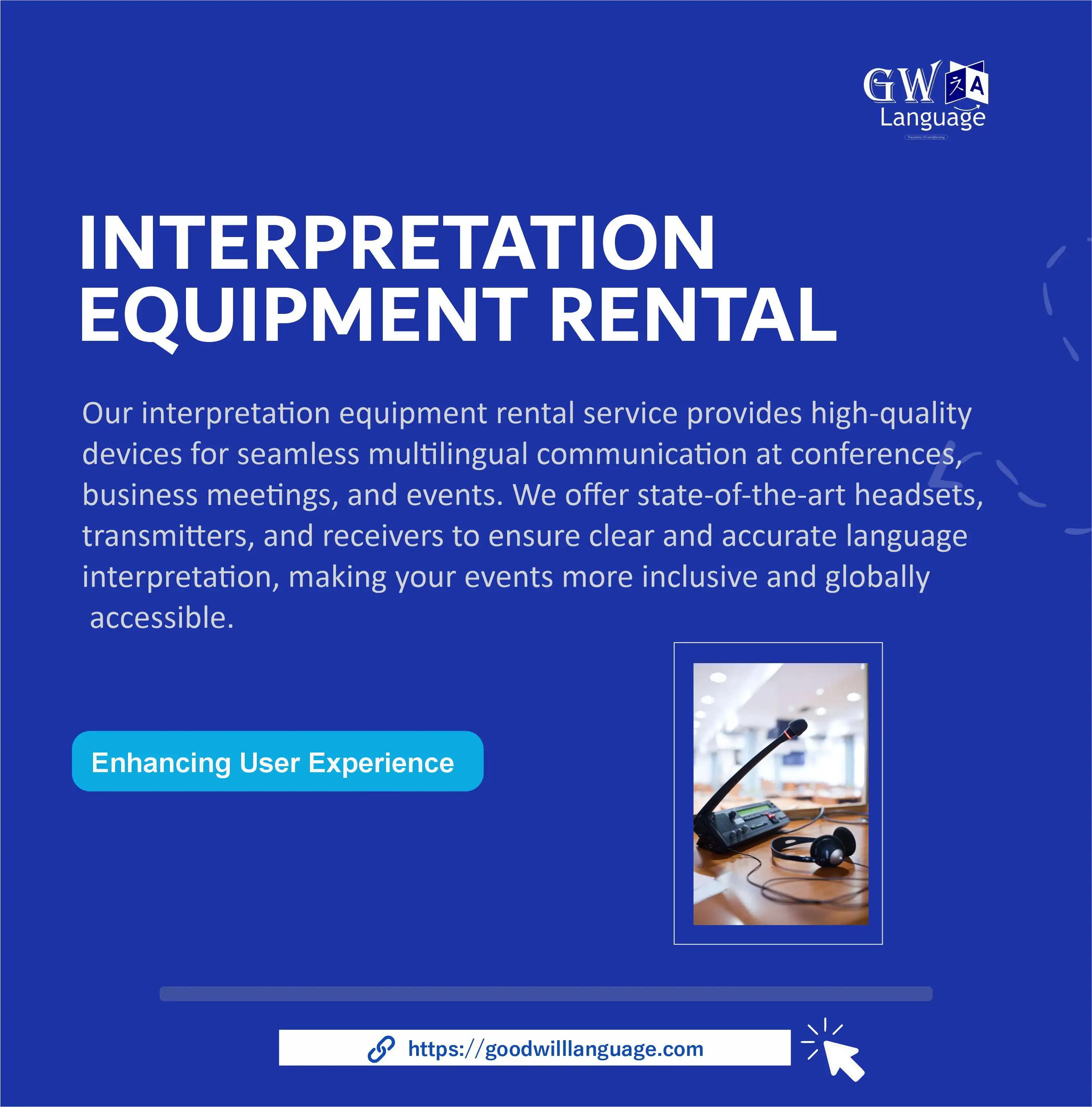
Rentage of Interpretation equipments for conferences.
At Goodwill Language Solutions, we prioritize expertise. Our team comprises highly skilled and experienced linguists, each native speakers of their respective languages. They possess in-depth knowledge of various industries, ensuring accurate and culturally sensitive translations that effectively convey your message.

We value your input. Goodwill Language Solutions provides ongoing feedback and support throughout the entire project lifecycle. Our dedicated project managers maintain open communication, address any concerns promptly, and ensure your complete satisfaction. We strive to build long-term partnerships based on trust and mutual understanding.

We understand the demands of modern learning. Goodwill Language Solutions offers flexible 24/7 language classes, allowing you to learn at your own pace and schedule. Our experienced instructors provide engaging and interactive lessons, covering all aspects of language acquisition, from grammar and vocabulary to pronunciation and cultural insights.

At Goodwill Language Solutions, we foster strong inter-customer relationships. We believe in building a supportive community where learners can connect, share experiences, and learn from each other. Our platform facilitates interaction and collaboration among our diverse clientele, creating a vibrant and enriching learning environment.

We are accredited by international professional organizations:
